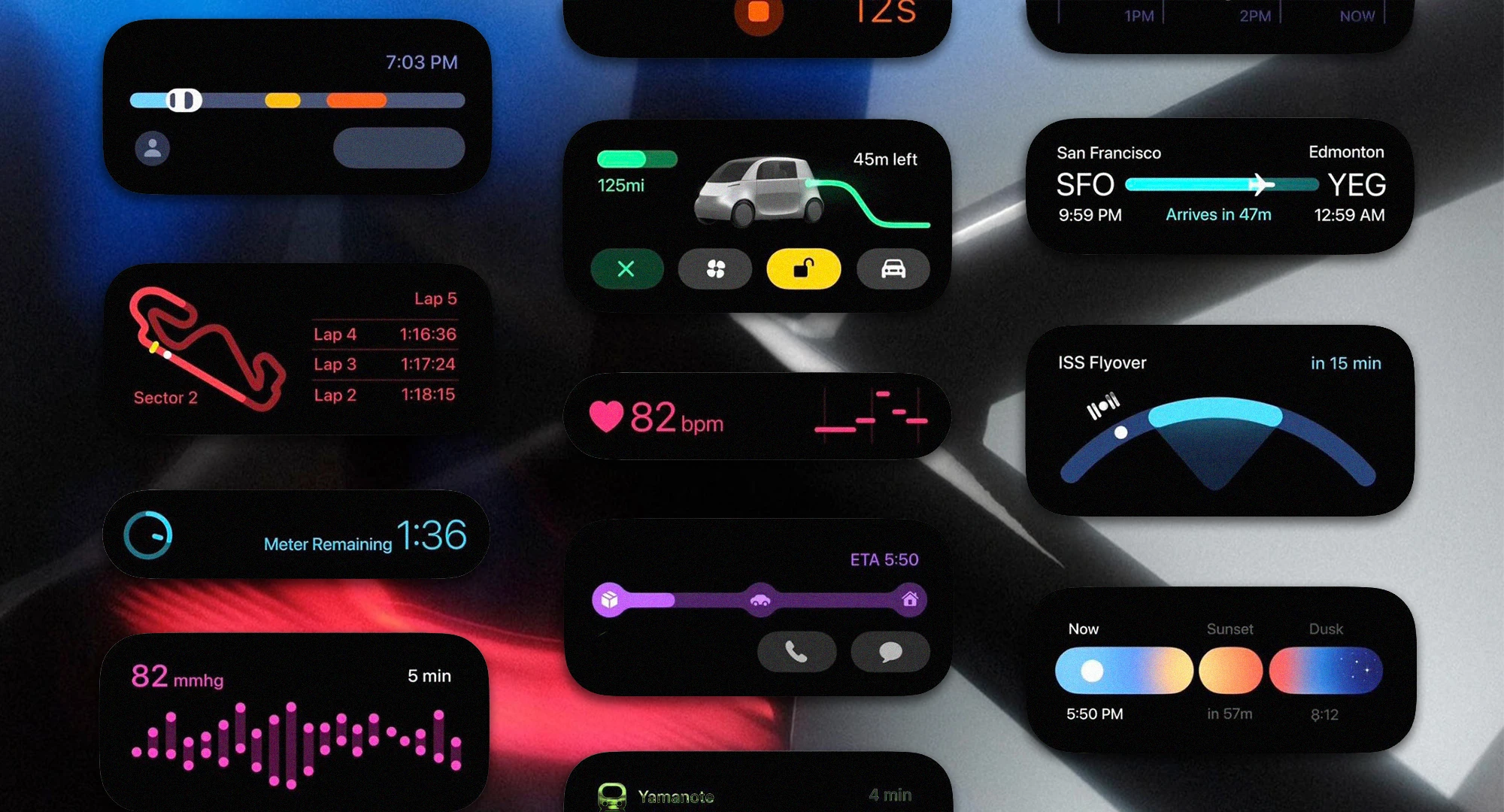
What is Competitive Intelligence and How Retailers Can Leverage It for a Competitive Advantage
Let’s kickstart the conversation and design stuff people will love.

Competitive intelligence is all about keeping an eye on your competitors in the retail world and making smarter decisions based on what you learn. Retail is a highly competitive industry, so staying ahead of the game is important.
With competitive intelligence, you can get the inside scoop on what your competitors are up to and use that information to innovate and develop strategic insights to help your business thrive. So, it's your secret weapon if you want to succeed in retail.
Let’s explore how retailers can leverage competitive intelligence to advance in such a fast-moving and volatile industry.
What Is Retail Competitive Intelligence?
In simple terms, retail competitive intelligence is when a retailer analyzes and acts on data collected about its competitors. From pricing to product features to marketing, this information can help a business adjust its vision, direction, and tactics to remain competitive and attractive to consumers.
Below, we discuss several of the key components of retail competitive intelligence.
Understanding Core Competencies
A retailer that systematically gathers information on competitors, market trends, and consumer behavior will gradually gain insight into its own unique strengths and weaknesses within the industry. Over time, it will become better equipped to discern its own core competencies and what differentiates it from competitors.
Interpreting Market Trends
Competitive intelligence also gives companies an edge when staying abreast of emerging market trends. In retail, it’s crucial to know what’s coming so your brand stays relevant and on-trend. When a retailer tries to consistently capture data on its competitors and the market and then uses this information to guide its decisions, it can stay one step ahead of the others.
Assessing Competitors' Strengths and Weaknesses
Not only does competitive intelligence provide retailers with a better understanding of their strengths and weaknesses, but it also highlights the competition’s. And this is obviously a huge benefit.
Why? Because then a company can leverage this knowledge to identify opportunities and capitalize on them. In other words, your competitor’s weaknesses can become your strengths.
Gauging Customer Perceptions
Finally, we can’t forget that competitive intelligence also brings consumers’ opinions, perceptions, and preferences to the forefront. Naturally, this is priceless information as a retailer, enabling you to adjust your strategies to more fully satisfy your customers, thereby likely bringing in additional sales and profit.
Why Competitive Intelligence Is Crucial for Retailers
While competitive intelligence is a valuable tool for companies in nearly all industries, its usage is even more critical for retail businesses. Given the space's constantly changing and cutthroat nature, retailers must do everything in their power to maintain a competitive edge—which is where competitive intelligence comes in.
Here’s how it can help you stay ahead.
Understanding Retail Crisis Triggers
Thanks to competitive intelligence, retailers can proactively identify potential crisis triggers such as shifts in consumer preferences, pricing wars, supply chain disruptions, and emerging technologies. By staying informed about their rivals' actions and market dynamics, they can make more informed decisions and develop strategic responses to mitigate the impact of these triggers.
This proactive approach will help your business adapt quickly to anticipated changes to successfully navigate crises and maintain its competitive advantage in an ever-evolving retail landscape.
Formulating Proactive Response Strategies
Because competitive intelligence gives retailers a deeper understanding of their competitors and the market, they are empowered to make decisions proactively rather than reactively. Hence, when the time comes that your business anticipates either new market opportunities or upcoming disruptions, it can move forward confidently using the key insights it has gleaned from competitive intelligence to strategically plan and make smart decisions.
Using Competitive Intelligence for Improved Response
One of the best things about market intelligence for brands is that it provides a full picture. Forget about making decisions based on limited data—with competitive intelligence, there’s abundant accurate information to inform every choice and strategy.
So once a crisis has been identified and a response formulated, your business shouldn’t hesitate to continue using competitive intelligence as it carries out its plan. It will support your decision-making, track the results, and help you make necessary adjustments on the fly.
In summary, retailers simply can’t afford to ignore competitive intelligence. Building a robust competitive intelligence system will make keeping tabs on your key competitors much easier, take advantage of market opportunities, and ultimately grow your market share.
How to Get Retail Competitive Intelligence Data
It’s time to dive into the step-by-step process of gathering and analyzing competitor intelligence data in the retail industry. We know you’re excited, so without further ado, here is the full list of steps:
- Define your objectives
- Identify your competitors
- Collect and organize your data
- Perform a SWOT analysis on each competitor
- Use competitive retail benchmarks to compare your business to others
- Run a pricing and product offerings analysis
- Study competitor marketing and promotional campaigns
- Estimate and track competitor market share over time
- Gather and analyze customer insights
- Identify actionable insights
- Refine your strategy, pricing, products, and marketing efforts
- Implement a system to continuously gather CI
- Establish a feedback loop that assesses the impact of strategic changes
If it sounds like a lot of work, don’t worry. Let’s go over some ways technology makes it easier.
Benefits of Artificial Intelligence and Machine Learning
AI and ML have taken the world by storm recently. This includes retail competitive intelligence solutions—these noteworthy technological advancements have made significant inroads here, too.
One real-world example is using AI-driven price optimization algorithms by online retailers like Amazon. These algorithms analyze vast amounts of data, including competitor prices, historical sales, and customer behavior, to dynamically adjust product prices in real-time.
By doing so, they ensure that prices are competitive yet profitable, maximizing revenue for the online retailer. Similarly, AI-powered recommendation systems analyze customer preferences and past interactions to personalize product suggestions, improving customer satisfaction and increasing cross-selling opportunities.
AI and ML help retailers better understand their competitors and make it possible for them to move swiftly in response to market dynamics.
The Role of Data Analytics
Data obviously plays a central role in competitive intelligence. When it comes to the retail industry in particular, however, there are several types of data that businesses should track, including:
- Human mobility data: Determining where people are moving to and from (migratory trends)
- Foot traffic data: Tracking the number of customers entering a location
- Competitors' product data: Identifying the competition’s product features and flaws
- Competitor pricing data: Monitoring how the competition is pricing its products, including promotions and discounts
- Competitor conversion data: Noting how many online and in-store visitors the competition converts into paying customers
A couple of thoughts about the above metrics. First, understand that it can be helpful to use some of this data as benchmarks against which to compare your own progress.
Second, some retailers will use product data to reverse engineer a similar product (only better). Finally, human mobility and foot traffic data can be used to decide where to open and close store locations.
The Emergence of Predictive Analysis
Predictive analysis has become a powerful tool in the retail competitor intelligence agency arsenal. Essentially, it uses data-driven insights to anticipate market trends and consumer behavior. Retailers are increasingly adopting this approach to gain a competitive edge.
For instance, a major retail chain might collect vast amounts of data on customer purchase history, online browsing behavior, and external factors like weather patterns. By applying predictive analysis, it can identify patterns and correlations within this data, allowing it to make informed decisions.
Referring to our earlier example, Amazon also uses predictive algorithms to anticipate what products customers are likely to buy next to optimize its inventory management and offer personalized product recommendations. This boosts customer satisfaction, reduces operational costs, and increases overall sales, illustrating how predictive analysis in retail competitive intelligence can significantly impact a company's bottom line.
How to Leverage Retail Competitive Intelligence Data
Companies must learn to leverage competitive intelligence data to achieve and maintain a competitive edge in the retail industry. It’s like a strategic compass, guiding retailers in what direction to go as they strive to understand consumer preferences and analyze market trends. By continuously gathering and analyzing information about their rivals, online retailers can gain valuable insights into their own actions and strategies, informing their decisions and strategic direction.
The key to benefiting from competitive intelligence data is monitoring it over time—scrutinizing competitor pricing strategies, promotional campaigns, supply chain efficiencies, and more. This isn’t a one-and-done task; it’s an ongoing process that enables businesses to adjust their own approaches in real-time, ensuring they remain competitive and relevant.
In product development, competitive intelligence data can influence retailers to create offerings that resonate with their target audience, while in pricing, it helps them set competitive and profitable price points. Promotions can be optimized by tailoring them to match current market trends, and supply chain efficiency can be improved when retailers identify potential disruptions or opportunities. Ultimately, by integrating competitive intelligence into their operations, companies can provide a superior customer experience and continue to flourish in a fast-paced industry.
How G & Co. Can Help
So, should your retail company handle the millions of details related to competitive intelligence all on its own? Or outsource it to a specialist?
Like anything else, there are pros and cons. While, for instance, in-house competitive intelligence teams can offer greater control and in-depth knowledge of an organization's systems, this option generally comes with higher costs and recruitment challenges.
Outsourcing, conversely, can be more cost-effective and easier to scale, in addition to providing more diverse expertise. The choice between in-house and outsourcing should be based on a retailer's needs, resources, and risk tolerance.
Companies that outsource their competitive intelligence needs should seek a consulting partner like G & Co. with deep industry expertise and a proven track record. G & Co., for instance, has successfully implemented competitive intelligence for Fortune 500 companies like Saks Fifth Avenue and Levi Strauss & Co. Remember, the proof is in the pudding, and it’s absolutely critical to pick the right partner.
Finally, don’t just pick a partner and then forget about it—be sure to measure your competitive intelligence solution's return on investment (ROI). Your company can do this in several ways—from tracking changes in sales, market share, and operational efficiencies to gathering feedback from stakeholders and evaluating how the partnership has contributed toward achieving strategic goals.
Ultimately, helping your business cost-effectively gain a competitive edge is what really matters.
Competitive Intelligence Drives Retail Success
Competitive intelligence plays a pivotal role in the success of companies across the board, particularly in the ultra-competitive retail industry. Retailers risk falling behind their competitors if they don’t learn how to embrace and utilize competitive intelligence.
While it can be done in-house, those companies that want to outsmart their competitors and gain market share should consider outsourcing competitive intelligence to an external partner like G & Co., which specializes in collecting, analyzing, and transforming data into strategic success. With G & Co. in your corner, there’s no doubt your retail business can achieve and sustain a competitive advantage for years to come.
Contact us today to get started.






%20(1).png)




